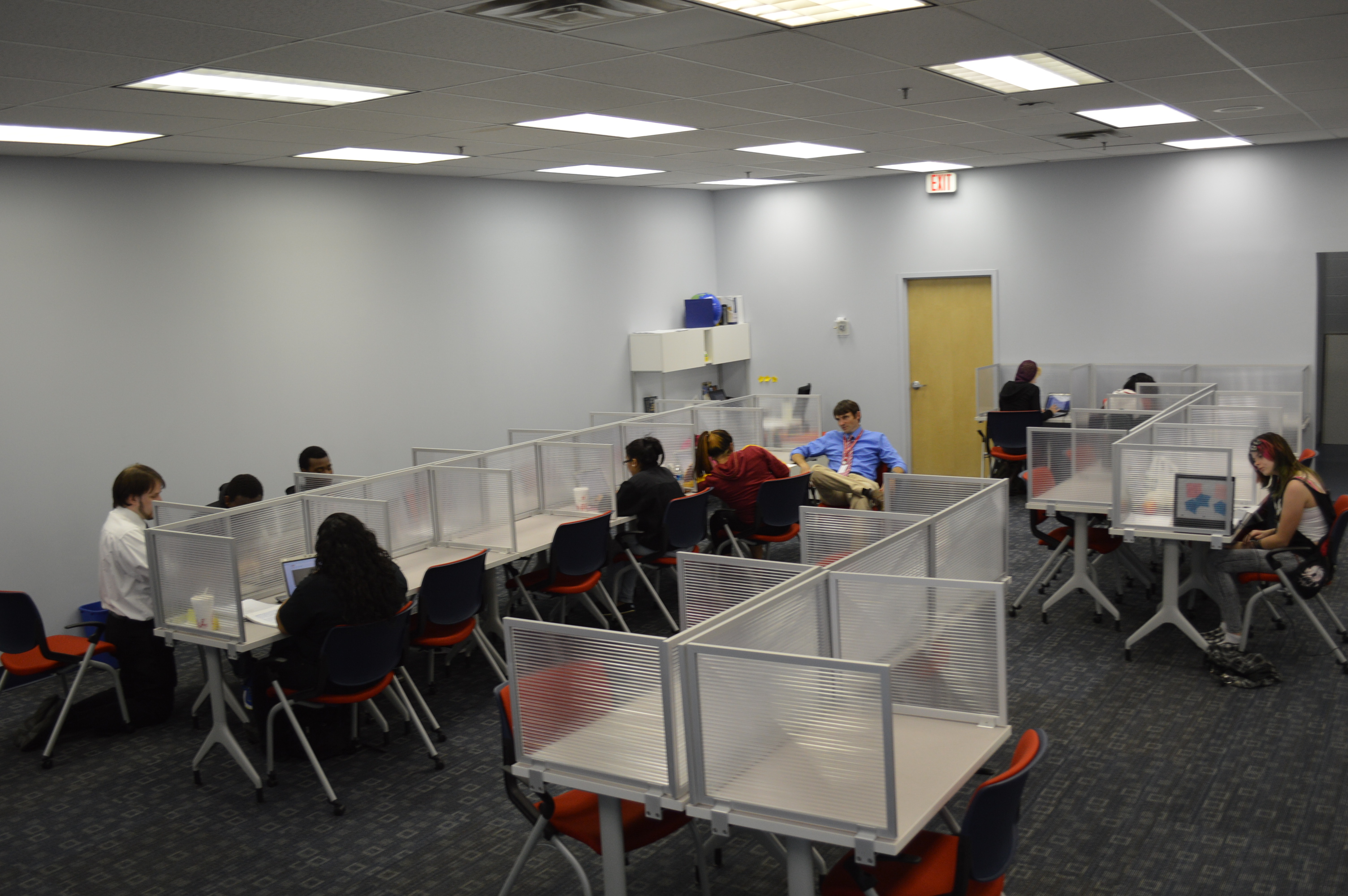
By Melissa Quinn
A new group of consumers walk into Landmark Mall these days, bent on leaving with a diploma rather than a new pair of sneakers or video game.
T.C. Williams students like senior Anthony Pullen pour over textbooks and tap away at laptops on the West End mall’s main level. They comprise the first group to attend classes at the high school’s satellite campus.
“I was not the best student,” Pullen said. “The satellite [campus] gave me hope because I could get back on track. I was failing classes … but I always had the capabilities.”
Pullen started at the offsite campus when it opened last month to complete his junior year. But after catching up with his coursework, he is on track to graduate in 2013.
“It’s an amazing place to be,” Pullen said. “The staff are always there to support you in any way they can.”
School board members and city officials formally celebrated the campus’s opening October 2. It’s the only satellite school in Northern Virginia, designed to keep students — many struggling with scheduling constraints — from dropping out.
“[As] we strive to find ways of meeting the needs of all students, it’s requiring us to think out of the box and find new and different way of reaching out to them,” said Deputy Superintendent Mayde Henson.
The campus welcomed its inaugural 98 registered students more than a month ago. On Tuesday, the faculty celebrated its very first graduate. The facility serves up to 100, with those enrolled taking online courses. With its early success, school staff has seen a waiting list of students sprout up.
Four teachers float around the classroom, ready to help students. The faculty will expand by two in the coming weeks, Henson said.
For some students, the size of T.C. — at more than 3,000 students and growing — overwhelmed them. Others, many with full-time jobs, regularly weighed whether to go to work or school.
“With the capacity and the growth in enrollment, we’re looking for new nontraditional ways to educate students,” Henson said. “We’re not going to build another $100 million campus.”
The curriculum requires students to spend at least 20 hours on campus working toward a diploma. Despite the transcendent environment, graduation requirements remain the same.
Students remain enrolled at T.C. and receive all the perks of attending the school — access to extracurricular activities and many of the same courses — but the satellite campus is open all day Monday through Friday and Saturday mornings from 9 a.m. to noon.
“There is no hour that I have ever been there … where there was not a student there,” Henson said. “Students are standing outside when the doors open at 8 a.m. and are there when they close at 8 p.m.”
Students can enroll in traditional high school courses like algebra and English but also a wide variety of electives, like animation, web design, accounting and anthropology.
With the growing success of the inaugural campus, administrators will consider launching more satellites, Henson said.
“If you’re willing to put in the discipline to do it, it’s proving to be a great alternative for students,” she said.










